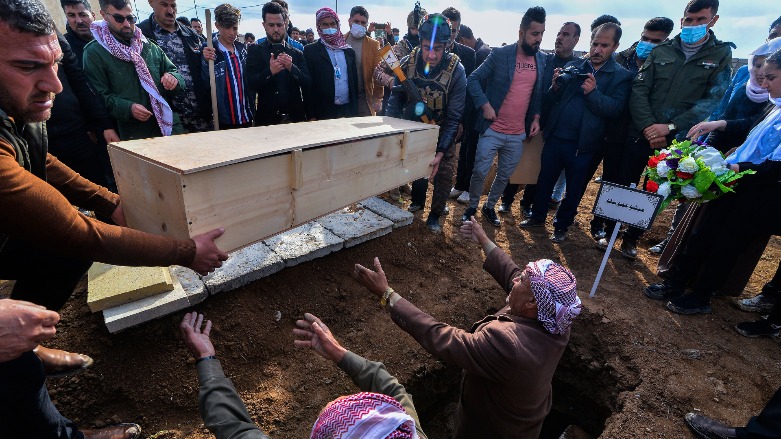Bill establishing court for ISIS crimes passes first reading in Kurdistan Parliament

ERBIL (Kurdistan 24) – The Kurdistan Parliament to convene after Eid al-Fitr to do the second reading for the draft bill aimed at establishing a special criminal court for the crimes committed by the Islamic State after successfully passing the first reading on Tuesday, said a Kurdish lawmaker.
The Kurdistan Parliament did its first reading of the draft bill in Tuesday’s session and it is expected to be approved by a majority vote in the next session, Khadija Omar, a lawmaker in the legal parliamentary committee, told the official website of the Kurdistan Democratic Party on Wednesday.
“Having such a law in the legal system of the Kurdistan Region, particularly for the ISIS crimes committed against the people of the Kurdistan Region and Kurdistani areas outside of the Kurdistan Region administration [disputed territories], is a very important step toward justice,” Omar said, while highlighting the group’s crimes against the Yezidi (Ezidi) community.
She explained that the law will provide a legal framework to punish ISIS members, helping to recognize their crimes, as well as collecting aid for the victims from inside and outside of the autonomous Kurdistan Region.
If the the bill passes, a monetary fund will be established to collect aid from local and foreign donors, including from the international community, to be later distributed to the victims of ISIS crimes, she said.
“The headquarters of the court will be based in Erbil, and according to its law, the head of the court can call for support from the international community to send judges or experienced legal investigation advisers in the field of crimes against humanity” to assist the court, she added.
After its emergence in Iraq in 2014, ISIS carried out barbaric crimes against communities across the country, including Yezidis and Christians in the north. Although the group has lost control of the territory it controlled in Iraq, it continues to launch insurgent attacks, particularly in areas disputed between Erbil and Baghdad.
Editing by Joanne Stocker-Kelly